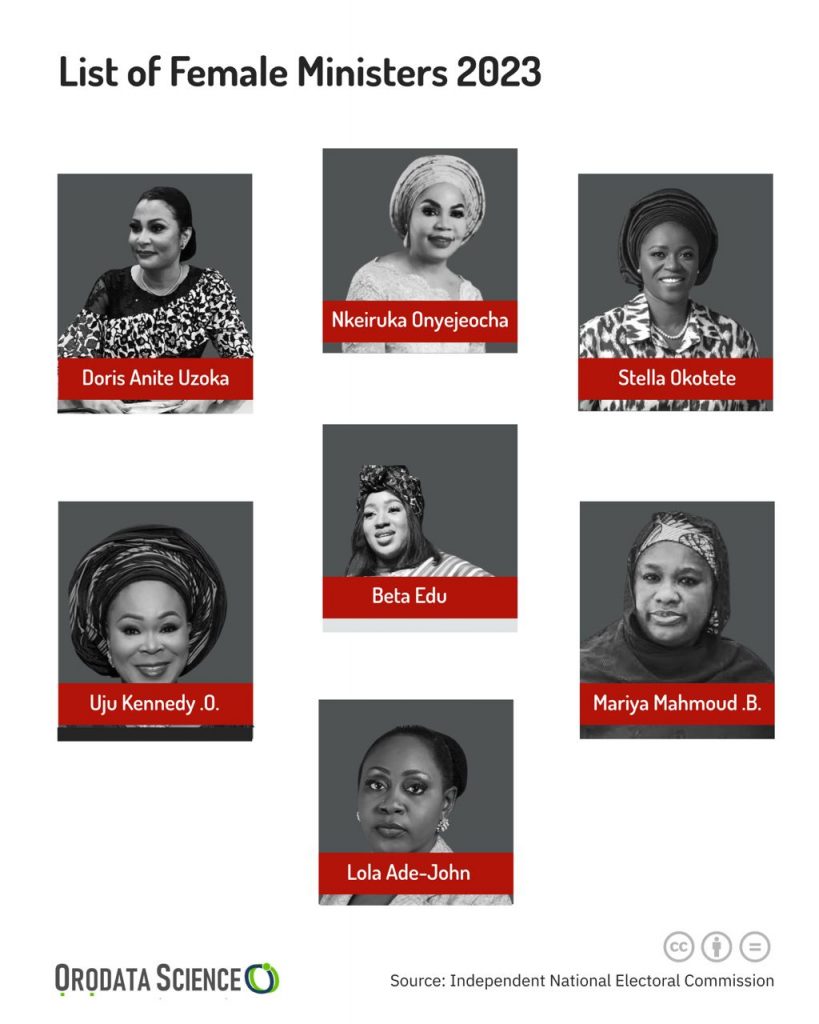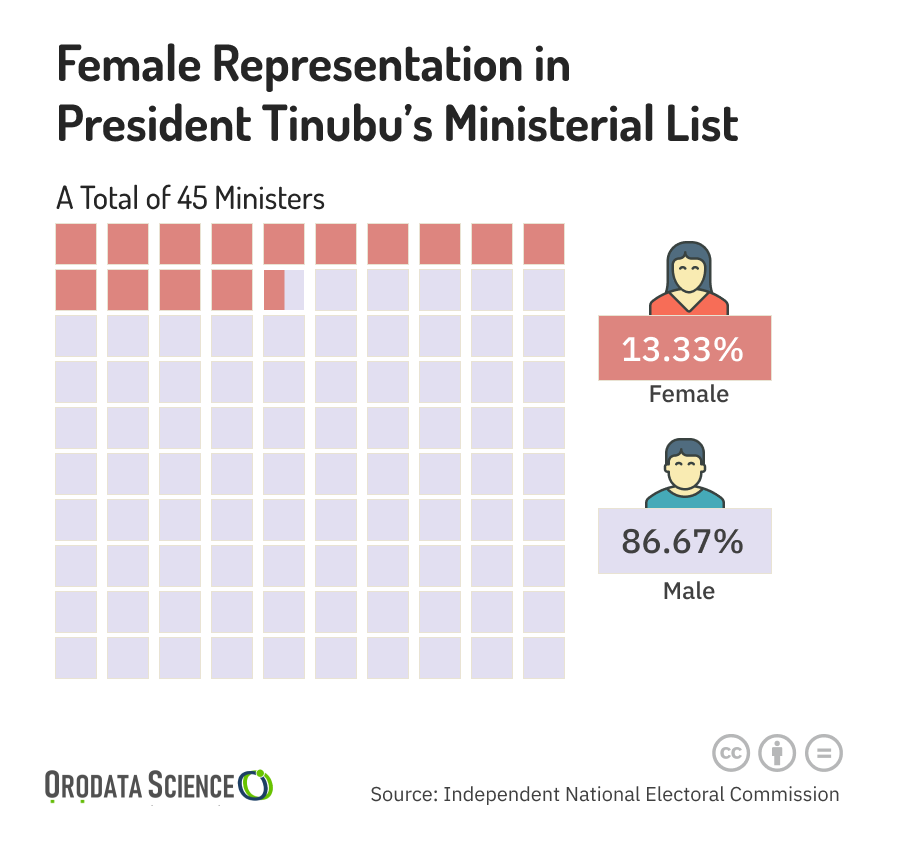At a time when Nigerian women are clamouring for improved participation in governance, President Tinubu has shown that such equality may not be experienced in his administration. So far, female representation in is government his lower than his predecessor’s.
Only six, 13.33% of the 45 ministers inaugurated on Monday are female. This is one woman short of what former President Buhari had in 2019 – seven.
The six female ministers in Tinubu’s government are: Minister of Art, Culture and the Creative Economy, Hannatu Musawa; Minister of Humanitarian Affairs and Poverty Alleviation, Betta Edu; Minister of Women Affairs, Uju Kennedy; Minister of Industry, Trade and Investment, Doris Anite; Minister of Tourism, Lola Ade-John; and Minister of State, Labour and Employment, Nkiruka Onyejeocha.

OTHER APPOINTMENTS
Before the appointment of ministers, President Tinubu had made some appointments, specifically 20 special advisers. Of all the 20 advisers, only about three of them are females. They are Yetunde Sekoni, Motunrayo Jinadu, and Hannatu Musawa who has now been upgraded to a minister.
The President also appointed Olu Verheijen and Hadiza Bala Usman as special advisers on Energy, and Policy Coordination respectively.
This makes a total of 10 appointments for females, in a list of over 70 ministers and advisers.
Although females constitute 49 per cent of Nigeria’s total population, their representation in governance and politics remains low and staggering. Gender advocates and Civil Society Organisations have made concerted efforts to change the narrative through protests and policy proposals but their efforts are yet to yield much impact.
Five separate bills seeking gender equality in governance and the country at large were rejected by the ninth National Assembly provoking protests by women in Abuja.
One of the bills sought to allocate 35 per cent of political positions based on appointment to women, while another legislation sought to create special seats for women in National and State Assemblies. They were both rejected by majority of the lawmakers.

